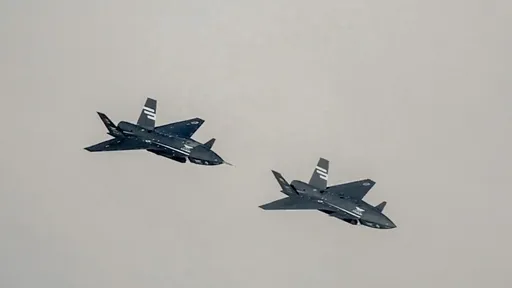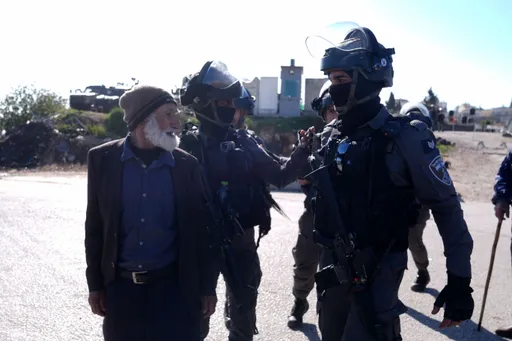Nearly three months have lapsed since Israel's onslaught on Gaza began. However, there are more questions than answers, as the Israeli forces appear overwhelmed by the intensity of the Palestinian resistance.
While the Israeli military bombards civilians frantically and indiscriminately, the Gaza resistance has been striking hard at the elite military personnel venturing on the ground.
In this context, certain power centres in Israel, including Prime Minister Benjamin Netanyahu, wanted to expand the conflict, hoping to involve the United States directly in the conflict. Initially, they had expected Hezbollah to open up a new front along the border with Lebanon, a terrain the Israeli forces knew very well.
However, a different choice has emerged, embodied by the Houthis in Yemen.
The Houthis, key players in Yemen's civil unrest since 2014, have targeted trade vessels en route to Israel through the Red Sea's Bab el Mandeb Strait.
One of their most audacious actions occurred on December 12 when they unleashed a naval missile against a Norwegian ship, carrying oil for Israel, that refused to stop.
One of the cargo ships they seized, the Galaxy Leader, was even turned into a tourist destination.
The Houthis continue to assert that they will solely target vessels heading to Israel as long as the Israeli attacks on Gaza continue, stressing that the sole condition for de-escalation hinges on Israel's cessation of hostilities and the opening of humanitarian aid channels to Gaza.
Under the justification of safeguardingmaritime navigation in the Red Sea, Washington has immediately taken measures, forming a multinational coalition, which is incidentally marked by the notable absence of Arab countries (save for the small state of Bahrain).
Yet, it appears that Washington's aspirations have hit a snag. It turns out that certain European allies with this naval coalition are inclined to pursue independent actions rather than marching in step with American command on anti-Houthi operations.
They seem to prefer, at best, maintaining cooperation at the levels of information exchange and personnel sharing.
Houthi gameplan
So, what is the endgame for the Iran-backed Houthis in Yemen? And what is the broader geostrategic impact?
First, the Houthi attacks in the Red Sea have caused immediate economic repercussions.
Leading global maritime companies, including Hapag-Lloyd, Mediterranean Shipping Company (MSC), CMA CGM, Evergreen, and the energy giant British Petroleum (BP), have suspended operations until security guarantees are in place. Other multinational firms could follow suit soon.
The primary concern amidst these disruptions lies in the potential rerouting of LNG tankers, opting for a three-week longer and more expensive pathway.
These developments will lead to global energy market price hikes and a spillover effect on interconnected sectors. Nevertheless, the impact on global supply chains is anticipated to be limited, according to Goldman Sachs and S&P experts.
Still, the Red Sea is grappling with a security crisis, and should this situation persist or worsen, substantial challenges may surface. But what about the geopolitical dimension?
In this crisis, the Houthis' behaviour is similar to previous patterns, and Iran's manoeuvres are key to understanding this new situation.
While Iran has obtained key concessions from the West not to expand the conflict with Israel, its public image in the Middle East was seriously dented. Therefore, spectacular actions from the Houthis give the impression that Iran is still an integral part of the 'Axis of Resistance'.
Moreover, the Houthis have also increased their leverage and international standing, positioning themselves as noteworthy parties in negotiation channels involving Arab countries (e.g., Oman), the US, and a cohort of Western nations.
Meanwhile, Saudi Arabia and the UAE, staunch enemies of the Houthis, distanced themselves from the US-led Operation Prosperity Guardian coalition.
This decision was partly taken because this coalition is ineffective as it uses the aegis of Combined Task Force 153 (CTF 153), which was already in place to fight piracy on the coast of Somalia and will not make a difference.
In fact, this coalition is a low-cost arrangement for Washington to show its commitment to upholding security in international waters through a collaborative approach and secure its global standing.
The Saudis and Emiratis have also opted out from the coalition because they still have bitter memories of their recent prolonged war that failed to subdue an implacable foe who does not hesitate to use brinkmanship strategies and wage an all-out war on civilians' infrastructure and energy facilities.
Iran's proxy war
The Houthis are adept at asymmetric warfare and are part of Iran's proxy warfare. It is equipped with UAVs and UMVs and has been trained by Iran's Revolutionary Guards-Quds Force and Hezbollah.
While Iran continues to manoeuvre behind the scenes and score points, the Saudis and Emiratis are working on their perception management, stained indirectly by the Houthis, as being pro-Western and pro-Israel stooges.
Ultimately, Saudi Arabia is the one that will pay a heavy price. The Houthis know that Crown Prince Mohammed bin Salman (MBS) plans to make the Red Sea part of Saudi Arabia the pinnacle of its economic project (e.g., NEOM City).
By causing unrest in this region, the Houthis threaten the Saudi economic plans and will oblige the Saudi leadership to make further concessions to stop.
Thus, Iran will likely emerge as a winner in these developments. Its Yemeni proxy will gain more diplomatic and economic capital, whereas the Iranians will pay little cost.
While the Houthis like to claim they stand for Gaza, they are proving day after day that they can navigate adeptly the murky waters of realpolitik and proxy wars.
As the US-led operation progresses and negotiations begin via mediators, the bigger picture with its winners and losers will become clearer for all to see.























